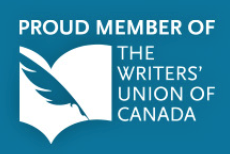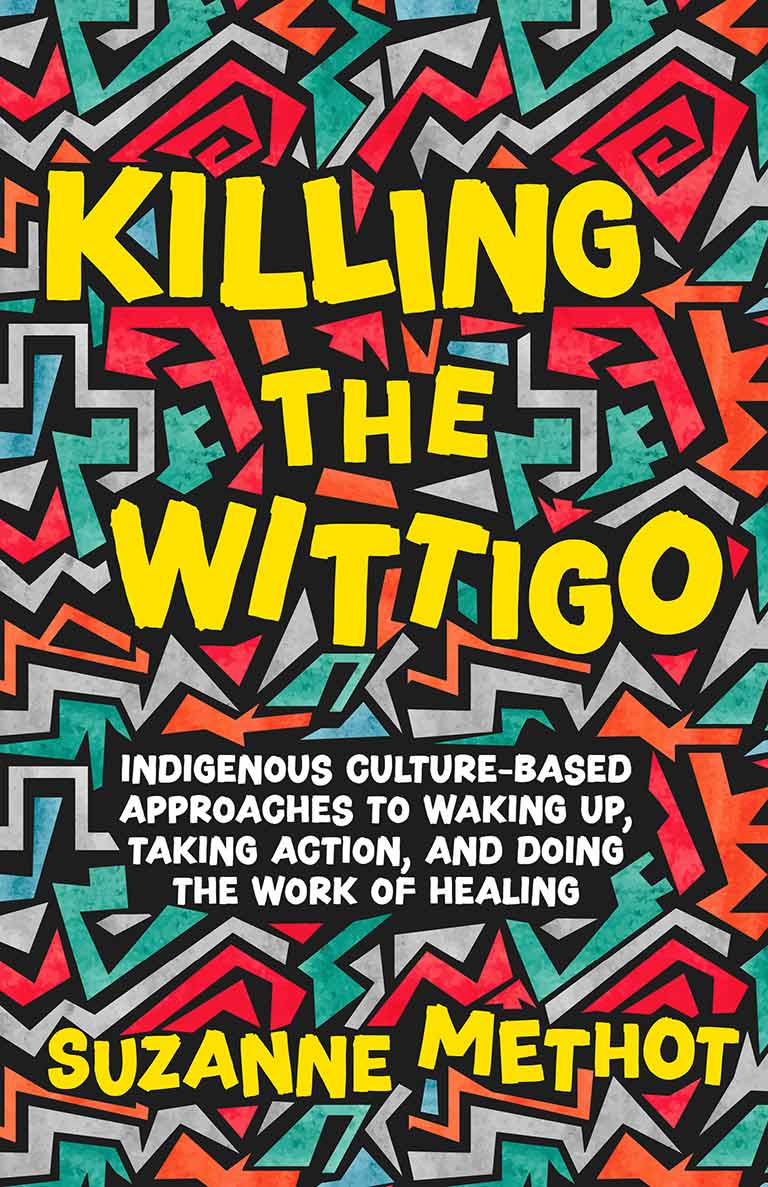Suzanne works as an editor, content reviewer, and sensitivity reader for book publishers and post-secondary institutions.
LATEST BOOK
Killing the Wittigo: Indigenous Culture-Based Approaches to Waking Up, Taking Action, and Doing the Work of Healing
A powerful book that uses plain language to talk about colonial trauma and transformational change.
History. Identity. Lateral violence. Complex trauma. Who are we and how are we seen? How do we learn what safety is when we’ve never experienced it? How do we turn distressing feelings into emotions that we can understand? Killing the Wittigo talks about the effects of colonization and the healing work being done by young Indigenous people toward individual and systemic change.
Sexual abuse. Relationships. Kindness and kinship. Are your relationships harmful or healthy? What do healthy families look like? Killing the Wittigo shatters the isolation and shame to talk about everything from managing triggers to what young people are asking of their parents and their leadership.
more...“This is an uncomfortable book to read – but it is meant to be. This concise but broad-ranging work examines the lasting emotional and psychological impacts of colonization on Indigenous people in the U.S. and Canada. Throughout, activities help readers learn about themselves and process what they have read. Along with a variety of fonts, line art, and interesting graphics and charts, quotes and social media posts from young Indigenous people discussing their experiences add to the mixed-media appeal. These voices also give readers the feeling that they are not alone. The chapter on lateral violence, intracommunity dysfunction that is usually not openly addressed, is particularly valuable.” Kirkus Reviews
“Educator and agency worker Methot offers young adults suggestions for breaking the cycle of intergenerational trauma in order to live their best lives. Writing from a trauma-informed perspective and including trigger warnings, she provides examples of colonial practices that harm Indigenous peoples, explains how this stress is passed down in families, and provides some examples of healing at work. While Indigenous teens are the obvious audience, this is an eye-opening and important resource for anyone concerned with North America’s colonial legacy.” Booklist (starred review)
“Community-focused, easy to read, and filled with concrete examples and stories, the book not only uplifts healing in Indigenous communities, it also turns the lens to talk about what settler society needs to do to create systemic change. A great, graphic-heavy resource for Indigenous young people, educators, and anyone looking to expand their understanding of the ripple effects of trauma, Killing the Wittigo is essential reading.” Open Book
“Colonization is traumatizing the Indigenous population even now, and this is going to be uncomfortable for some. But reality and truth are always uncomfortable. As a person of colour myself, I know this for a fact. The book is meant for young adults, but everyone who wants to know more about intergenerational trauma can read it. This book is rich with psycho-education as well as practical exercises for being anchored, centered, and present in our self.” Goodreads
“I truly enjoyed reading Killing the Wittigo by Suzanne Methot. I love the stories, ceremonies, and teachings. The book is very thought provoking, and bringing wittigo into the modern day hardships of our people is brilliant. Very few people can go through life without some kind of trauma, but what happened to the Indigenous community was life altering. The physical abuse, sexual abuse, emotional abuse, and grieving – we don’t just get over it, and the intergenerational hurt will be with our community for a long time to come. This book will help people look at their trauma in a different way. Our culture and ceremonies have always helped our people, and the cultural approach is on point.” Harvey Manning (Anishinabe), Community Worker
“This is an excellent book for youth – or anyone – looking to achieve true, transformative change in their lives.” Marci Becking, Anishinabek News
“Killing the Wittigo is written with a clear understanding of trauma and its many aspects. The book is an in-depth look into the reader’s life experiences, bringing them to an enlightened knowing of self. The most powerful part is offering the tools needed to heal while living in more happiness and peace. I highly recommend this book to everyone.” Joanne Dallaire (Āhtawāpiskatowi Ininiwak), Elder and Senior Advisor, Toronto Metropolitan University
“This young adult version of Suzanne Methot’s award-winning book Legacy: Trauma, Story, and Indigenous Healing provides a thought-provoking exploration of the legacy of colonization on Indigenous communities. It delves into the long-lasting effects of trauma, but also foregrounds Indigenous resilience by sharing stories of young people who have started on their own healing journeys. Through these powerful accounts of decolonization, transformation, and change, readers will gain a deeper understanding of the complex challenges still faced by Indigenous communities today.” TEACH Magazine
Ontario Library Association Best Bets Book List 2023
Chicago Public Library Best Teen Non-Fiction of 2023
Toronto Public Library The List (Best 100 Newly Published Books for Teens)
Massy Books Indigenous History Month reading list
McGill University Neuro Patient Resource Centre Summer Reading List


Now available in bookstores and online.







